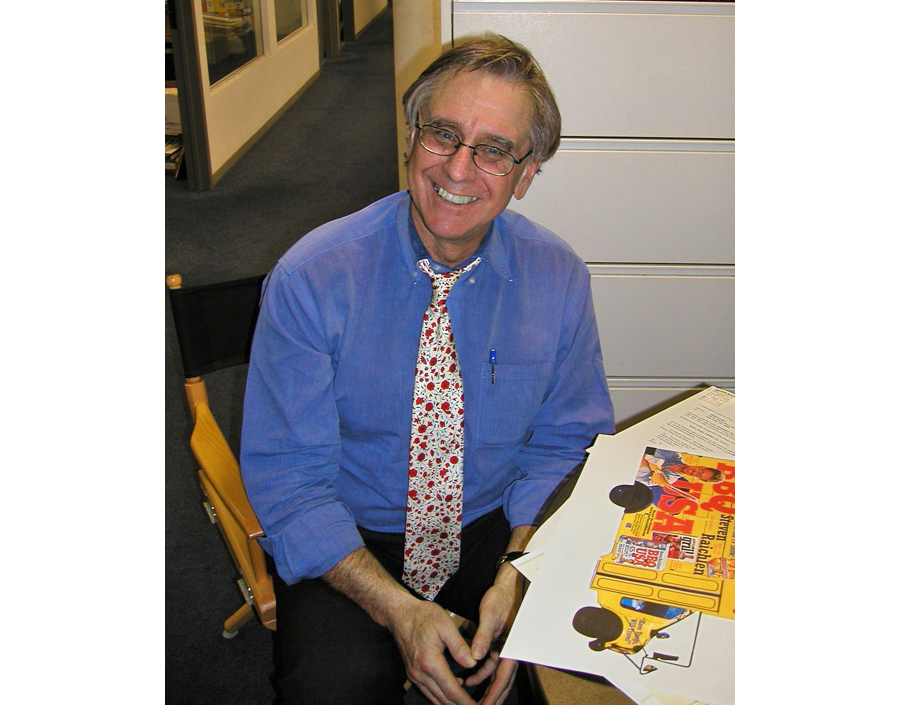Workman History

Our History
Peter Workman: Tilting at Windmills
“Poker, literature, travel, sportsmanship, a keen interest in everything and a specialty in nothing—without my knowing it, life was preparing me for the book business.”
After graduating from Yale University, Peter began his career in books working in a bookstore, as a sales rep for a small trade magazine publisher, and then for Dell Publishing. Following these stints, Peter and a partner cofounded Parallax Publishing, a book packaging company. Soon, Peter went off on his own, launching Workman Publishing in 1968 with the first book under the Workman name, The Yoga 28-Day Exercise Program (which is, remarkably, still in print). This little company grew and grew and is today the largest independently owned trade book publisher in the United States. Peter Workman died in 2013; his wife and long-term partner in the business, Carolan Workman, now heads the company.

In 2010, Peter was honored at a Yale publishing event and spoke of what he had learned over a lifetime of making books. Here is a transcript of what he said:
“Publishing books (as an independent) is like tilting at windmills. You do it for the joy of it. You do it out of passion. You do it because it’s the only thing you want to do, perhaps the only thing you truly know how to do.
And you do it for the challenge. It’s difficult, it’s demanding, and it requires a kind of mad faith that you will succeed. Like a baseball player, great success for a publisher is getting it right three out of ten times. Four out of ten, and you’re in the realm of legends.
How do you measure success? There are numbers of copies sold and weeks on the bestseller list. But perhaps better, though less quantifiable, ways are these: Is the book the best it can be? Does the book express the author’s vision? Are you proud of the book—when the first copy comes in from the printer, do you feel like you can’t wait to send it to friends, family, buyers, reviewers? Does the book offer good value? Does it have a legitimate reason to exist? Does it give you pleasure?
And does it push the idea of what a book can be? There is so much speculation about the “future of the book,” as if a book were to writing what a CD or, earlier, LP, is to music. I would argue that a book is more than a conveyance of words and ideas. A book is a work in itself: its size, its shape, its title, its design, its color, the feeling of its paper, the promise it has when you crack it open—all of these things make a book more than the sum of its parts and contribute to the pleasure that a book brings to its owner.
That’s the job of the publisher. It’s a quixotic endeavor, because there’s no telling where it leads. But for an independent publisher, that’s part of the joy.
It’s also why the first principle of being an independent publisher is Follow Your Gut.
What other principles apply? Joyousness. I’ve already used the word joy several times. It is the joy of the work —and working like a dog. But there is the joyousness in the books themselves. We want our books to make readers happy, to convey pleasure. We fall in love with our books, and we want readers to do so also. Joyousness means sharing and celebrating the writer’s and reader’s passion.
Another principle: Excellence and smartness of information. Information, particularly today, is everywhere, largely free and at any computer user’s fingertips. But writers are still authorities and editors still the best gatekeeper and shapers of information, and the book still the best way to deliver consistently excellent, structured, useful information—information that guides rather than confuses the reader, information that’s trustworthy, authoritative, accessible.
Another principle: Honoring the book. For us, this means working all out for the book and the author, from the moment of the first designs and titles to years after the book’s publication when we’re still going after publicity and going back to the buyers with new reasons to stock and sell it. By its definition a book is something more permanent, and it’s important to honor that.
Another principle: Keep the list small so that attention can be big. Never publish more titles than you can tend to.
Another principle: Differentiate yourself. Know what you do as a publisher that no other publisher does, and do it better than anyone could. Try to publish books that are singular. Find the unique way to cover a subject. Give the book the format it needs, even if it’s never been done before. Be open to new ideas, and follow them wherever they lead.
And finally, be accessible, not elitist; open, not snobbish. Publish books that are useful, practical, give good value, and respect the reader’s intelligence—and wallet.”